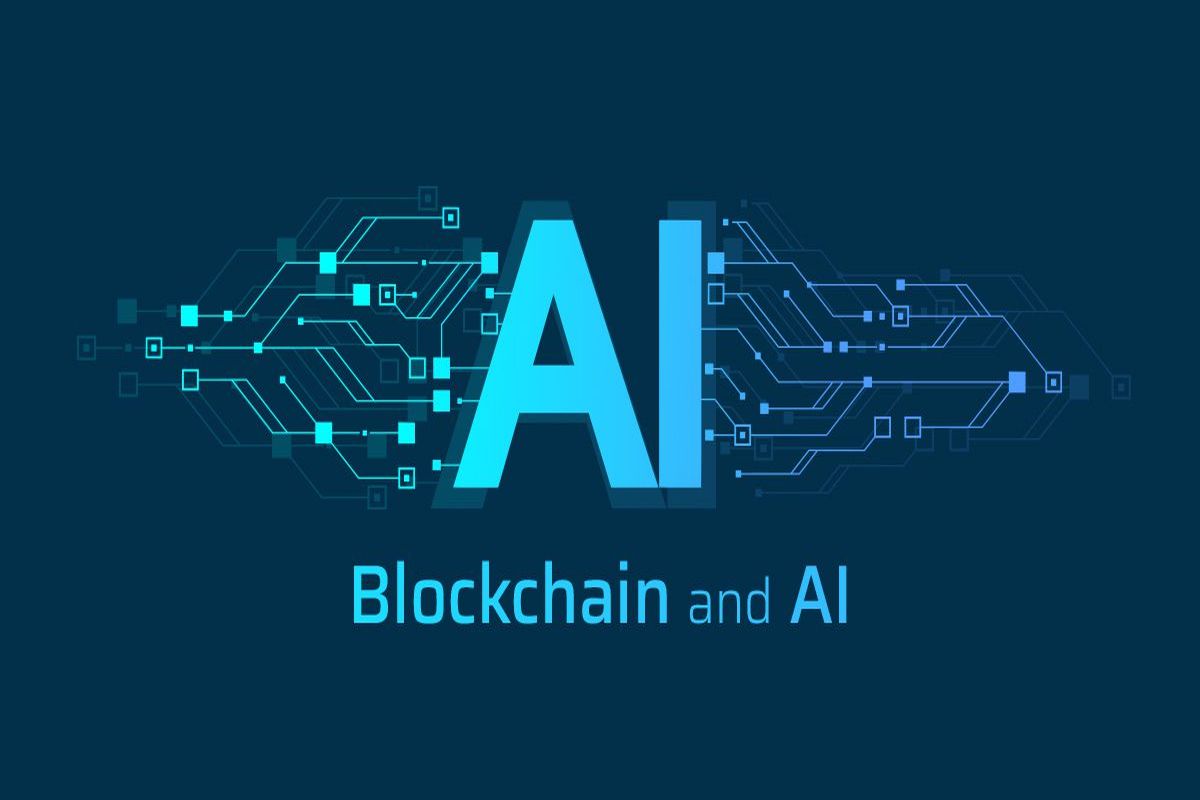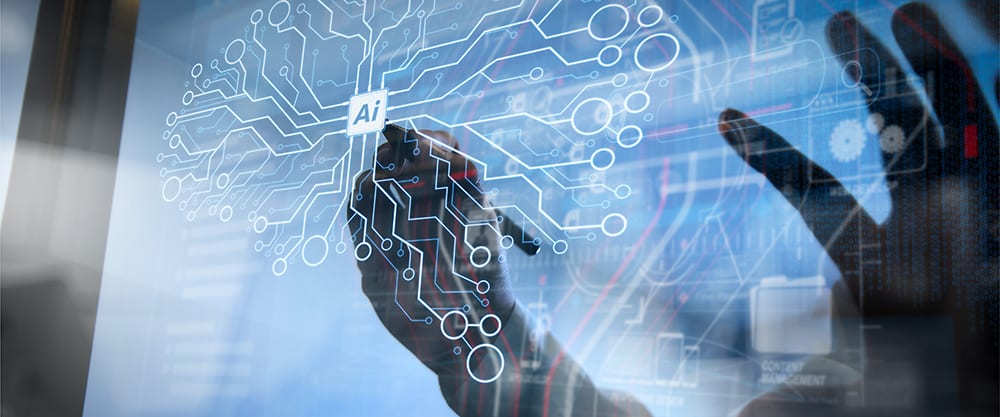Several industries can be revolutionized by the synergistic and dynamic link between artificial intelligence (AI) and blockchain. Blockchain can help resolve some of the challenges that affect AI, including security, data privacy, and trust, because of its transparent and decentralized nature.
One of the major benefits of AI and blockchain is in the space of data privacy and sharing. Massive data sets are important for AI systems, yet sharing data is at times limited by privacy issues.
Without depending on a centralized authority, blockchain technology’s decentralized infrastructure supports secure data collaboration and sharing among multiple operators. It enhances trust and encourages data sharing while letting people retain control over their data and providing artificial intelligence algorithms just the access they require.
Moreover, the immutability and tamper-resistance of blockchain enhance the reliability of AI networks. The transparency offered by blockchain can provide a valid audit trail, guaranteeing that the data used for AI training is real and unchanged. That can be mostly helpful in sectors where the quality of data and reliability are important, such as finance and healthcare.
Blockchain technology can also enable AI models to be used in a decentralized manner, using the strength of distributed networks. For example, users can check on the performance and accuracy of AI models by reviewing the transaction history and feedback from other users, which promises immutability and transparency. In that context, single points of failure, scalability, and general effectiveness and robustness of AI networks might be boosted.
It is important to note that there are challenges and limitations to consider in the relationship between AI and blockchain. Because of the slower transaction rates and enhanced energy use as compared to conventional centralized networks, blockchain technology is not scalable currently. Moreover, the deployment of AI algorithms on blockchain networks can be challenging because of the computationally demanding nature of the algorithms.
However, the constant progress in research and development within the blockchain and AI spaces is actively looking for remedies to these hiccups, while also striving to enhance the potential benefits that are derived from their bond.
As technology progresses, users expect the emergence of innovative solutions that harness the integrated power of blockchain and artificial intelligence, resulting in transformative advancements across multiple industries. This continuous evolution promises to bring about considerable changes and shape the future landscape of technology-driven industries.
Collaborations Between AI And Blockchain
Blockchain technology can enhance data integrity, make incentives and tokenization easier, support secure data cooperation and sharing, and underpin decentralized AI governance. All these factors can make AI networks more open and highly reliable.
Boosted Data Integrity
The transparency and immutability that blockchain technology has by its very nature can enhance the integrity of data used in AI networks. Notably, blockchain technology lets AI algorithms access verifiable and tamper-proof data, guaranteeing the dependability and precision of insights and projections.
For example, blockchain can be utilized in supply chain management to track and document the smooth movement of items. In that context, the data can be reviewed and carefully analyzed by AI networks to discover patterns, spot abnormalities and enhance logistic processes.
Secure Data Collaboration And Sharing
Artificial intelligence systems require access to many huge data sets, and blockchain can provide a safe and decentralized platform for data sharing. Blockchain supports data sharing between many parties without depending on one party, maintaining privacy, and control over sensitive data.
For example, in the healthcare sector, patient records kept on a blockchain can be securely shared with AI models for diagnosis or research while ensuring that the privacy of sensitive information is protected.
Incentives And Tokenization
Blockchain technology can help support the creation of coins or tokens that make it easy to incentivize and monetize AI environments. The tokens can be distributed as compensation to people who offer computational resources, train different models, or provide data. These rewards can help promote teamwork and encourage active participation in artificial intelligence research and development.
One example is SingularityNET, a platform that integrates AI and blockchain to develop a decentralized market where artificial intelligence agents can provide services and get compensated with tokens for their efforts.
Related: How NFT and Artificial Intelligence are Intertwined – What Should Be Considered?
Decentralized AI Governance
Blockchain can assist decentralized governance and decision-making processes for AI networks. Stakeholder participation in different decision-making processes can be guaranteed with the use of smart contracts and decentralized autonomous organizations (DAOs), guaranteeing fairness and full transparency.
That can be greatly helpful in sectors like policy enforcement or the selection of artificial intelligence models. For example, blockchain is used by Ocean Protocol to develop decentralized data marketplaces and governance infrastructures, letting participants decide on data sharing and access as a group.
How AI And Blockchain Are Integrated In Different Sectors
By introducing new levels of transparency, efficiency, and security, the integration of AI and blockchain is helping to revolutionize many sectors.
Blockchain is designed to help guarantee the transparency and immutability of data in supply chain management, and AI algorithms may review the data to enhance logistics and discover any abnormalities that may arise. To guarantee the authenticity and safety of food supplies, IBM and Walmart, for example, have partnered to track them using AI and blockchain.
Contextually, blockchain in healthcare provides private patient information protection and secure sharing of different medical records. That data can be utilized by artificial intelligence to help create customized treatment regimens and boost diagnostics. A notable example of a blockchain-powered platform is Medicalchain which supports AI-based analysis while providing users access to and control over their medical data.
AI and blockchain function together to enhance fraud detection measures, customer identification, and risk assessment in the financial services sector. Integrating AI algorithms with blockchain’s transparency and immutability enhances the accuracy of finding strange activity. AI and blockchain are getting utilized by initiatives, like Quantstamp, to boost the security of smart contracts in the financial industry.
Related: Finance with Artificial Intelligence
Blockchain can be utilized by autonomous tools to support decentralized and safe data sharing among vehicles, facilitating group decision-making. To strengthen traffic management, safety, and navigation, artificial intelligence algorithms can analyze shared data. The MOBI project aims to create an autonomous car mobility network based on blockchain technology.
Possible Drawbacks Of Integrating Blockchain And AI
The integration of AI and blockchain presents many challenges related to energy use, scalability, data privacy, interoperability, and implementation complexity.
Scalability is a huge challenge because blockchain systems can find it challenging to deal with the huge data and computing demands of AI networks in real time. Environmental challenges are also brought up by both of these networks being computationally intensive. To gain smooth integration between different blockchain networks and AI models, issues affecting interoperability and standardization need to be resolved.
Data privacy and security are also important considerations. AI algorithms may sometimes process sensitive information that requires protection, while blockchain provides a secure and immutable data infrastructure. It can be challenging to find a balance between data privacy and the benefits of AI analysis, specifically in industries such as finance and healthcare where stringent privacy laws apply.
Adoption may be hindered by administrative and implementation complexity, mostly for smaller organizations. Despite all these hiccups, efforts are still being implemented to circumvent them. To wholly enjoy the potential of integrating blockchain with AI in diverse businesses, it is important to address all these challenges.
The Future Of AI And Blockchain Integration
The future of the relationship between artificial intelligence and AI is massive. One may expect more developments in privacy-preserving machine learning algorithms, the growth of decentralized AI marketplaces, and enhanced accountability and transparency in AI networks as technology evolves.
Notably, the incorporation of blockchain into federated learning is one such trend. With that setup, it becomes possible to train AI models on decentralized data without having to sacrifice privacy. Organizations can partner and cooperatively boost AI models while maintaining control over sensitive information by ensuring that data is localized and secure.
The growth of decentralized AI marketplaces is a majorly encouraging development. In that context, the creation of open and transparent marketplaces where developers can share and make money from their AI models, algorithms, and data is supported by blockchain-based platforms. This advancement of artificial intelligence research and development is ultimately underpinned by the decentralized strategy, which encourages creativity, boosts cooperation, and guarantees fair pay for the contributors.
Furthermore, there is potential for enhanced auditability and explainability when AI and blockchain are integrated. Notably, the process of making decisions is visible and traceable by documenting the actions that are involved in AI model training and inference on the blockchain. This can assist in enhancing the understanding of the results that arise from AI, support regulatory compliance, and boost confidence in AI networks.










